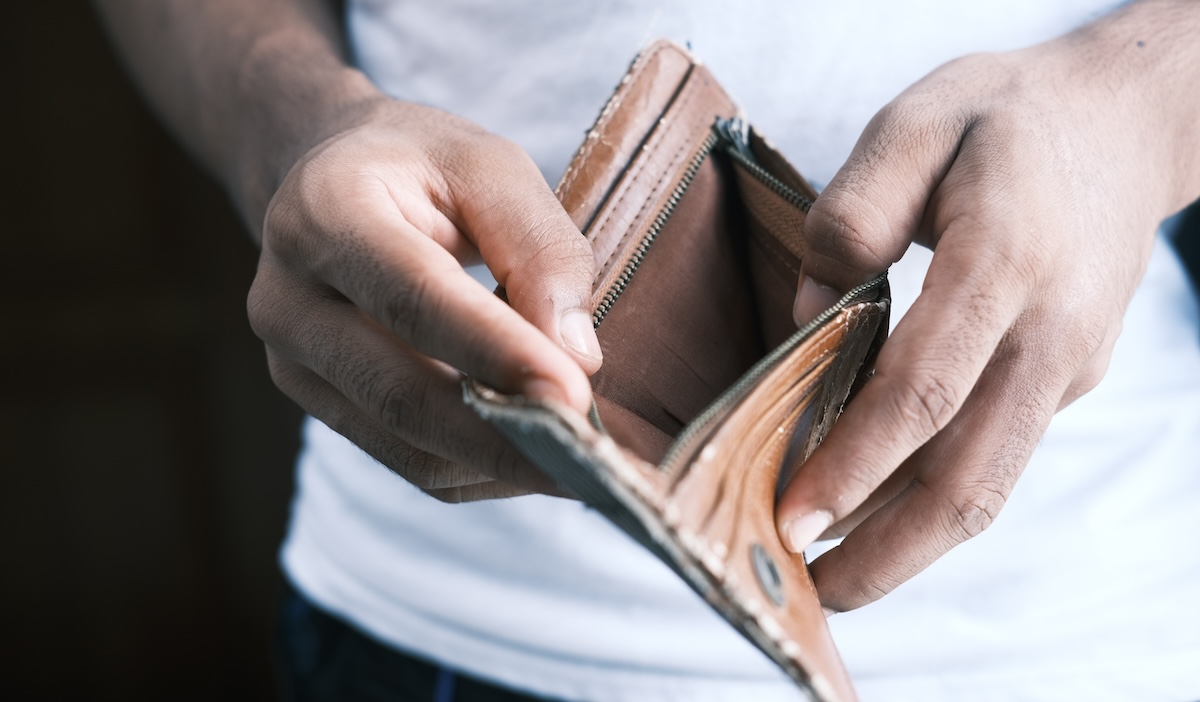A priest, rabbi, and NFL executive walk into a bar. They are promptly turned away when their credit cards are denied and can’t pay their tabs. This may sound like a bad joke, but the parable is a reality due to problem gambling. This week, a Pennsylvania priest was arrested for allegedly stealing over $117K from his church to cover gambling debt. Then there’s Chicago’s well-known Rabbi Michael Sternfield who was ousted from his position after winning a $10,000 jackpot from the very same casino he was self-excluded (due to debt) from. And the NFL executive? Former Jacksonville Jaguars executive, Amit Patel, has allegedly admitted to embezzling more than $22 million from the team to cover losses sustained from playing Daily Fantasy Sports (DFS).
Debt from gambling is a major problem in America, and the “epidemic” is predominantly due to the rise in cases of gambling disorder across the country. Below we take a look at some startling statistics from a recent Men’s Health survey and America’s Debt Help Organization along with important information about how the consequences are more than financial. More importantly, we conclude with a clear call to action for what struggling Americans can do to put an end to the vicious cycle.
What You Need to Know About the Gambling Debt Crisis in America and What Problem Gamblers Can Do About it Today
Startling Data About Debt Due to Gambling in America
This past year, Men’s Health produced a survey of 3,800 American men about their practices and perceptions around gambling. 1,500 of these men admitted to being active gamblers in having placed a sports bet in the past year. Below are statistics regarding gambling debt that the country needs to take to heart.
Nearly 1 in 5 allot a quarter of their paycheck to sports betting
1 in 5 are in or have been in debt from sports betting
More than 50% are willing to wager $10K at a chance to win $1 million
Meanwhile, America’s Debt Help Organization (debt.org) reports the following data on debt from gambling:
U.S. gamblers lost $120 billion in the most recently reported annum
Average gambling addict (men) debt is between $55,000 and $90,000
Average gambling addict (women) debt is between $15,000
Over 20% of compulsive gamblers file for bankruptcy
Debt.org also reports that U.S. casinos are keeping losing players at the table by giving them markers (loans) at an average rate of interest between 3% and 10%. Traditionally, casino markers were interest-free.
What Gambling Debt Can Make You Do to Others
If the financial risks weren’t high enough to force you to take corrective action against your problematic behavior, perhaps the fact that debt can cause you to harm others will. Debt from gambling often results in the following:
- Theft from friends and family
- Theft and embezzlement from the workplace (view more)
- Theft from others (burglary, mugging, and larceny)
- Threats of violence against those “responsible” for losses and debt (including athletes)
- Violent outbursts against others (due to gambling debt induced anxiety and stress)
What Gambling Debt Can Make You Do to Yourself
Research shows that problem gamblers have the highest suicide rate among all addictions with 1 in 5 problem gamblers attempting suicide. This concern is compounded when financial burdens are involved. Research shows that debt can make a person up to 20 times more likely to consider and attempt suicide.
What Gambling Debt Can Make Others Do to You
Debt can cause lending institutions to send you into financial ruin, with few banks and lenders being willing to work with you in the future for a mortgage or other investments. And while U.S. federal law abolished prison time for the indebted in 1883, there are situations in which you can be arrested for debt. Of course, those who secure funds to cover debt from loansharks face a whole other form of risk. Just ask former head of the Colombo crime family, Michael Franzese, who describes how he worked with bookies to force in-debt athlete gamblers to shave points.
What You Can Do About It Today
Whether your gambling debt is just beginning, or you’re in the deep end of the debt pool, you are ready to take immediate action. While you certainly need to repair relationships with creditors, it’s important to concurrently tackle the mental health root of the problem – gambling addiction. Please click the link below to change your life:
Get Immediate and Effective Problem Gambling Support
CALL +1 (877) 426-4258
OR


